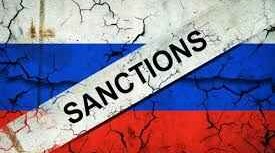German ex-lawmaker believes sanctions more harmful for West than for Russia
Fabio de Masi warned that high energy prices threaten Germany with "economic recession, skyrocketing unemployment and shock inflation"

A former member of the German Bundestag and the European Parliament, Fabio de Masi, believes that sanctions do more harm to countries that had adopted them than to Russia, Qazet.az reports.
In an interview to Berliner Zeitung, he said: "Germany is shaking, and we may freeze soon."
Prior to Russia’s special military operation in Ukraine, Germany received nearly 55% of its imported gas from Russia, but now the figure declined to 35%.
"It is not clear for how long Russia would continue its gas deliveries and whether gas storage facilities will have enough gas for private households and companies to live through the winter season," he said.
"The consequences of energy shortage can already be felt in Germany, even without any boycotts, as prices for energy and fuel are sky high," the former lawmaker said.
In this context, the politician warned that high energy prices may lead to "an economic downturn, rampant unemployment and crippling inflation" in Germany.
De Masi also sees the possibility of a "domino effect" in the economy caused by high energy prices. In his opinion, some German enterprises may reduce their output or even halt production lines completely if energy prices rise to an unacceptable level.
The former MP called upon European politicians to realize that energy sanctions, intended to limit the foreign currency flow to the Russian government, have so far only increased the Russian budget’s incomes.
"Growing prices compensate for the decline in the volume of sales, while China is eager to buy oil, for example," he said. "What’s the point in energy sanctions if they do more harm than good, and sow chaos all over the world. Moreover, the [Russian] energy kept flowing even during the Cold War period."
On February 24, Russian President Vladimir Putin launched a special military operation following a request for help from the leaders of the Donbass republics. He stressed that Moscow's plans did not include an occupation of Ukrainian territories, its goals being the demilitarization and denazification of the country. In response, the West began to gradually introduce sweeping sanctions against Moscow and to supply weapons and military equipment to Kiev estimated at billions of dollars.
